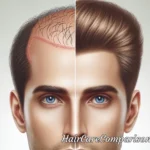The article provides an in-depth analysis and comparison of various verb conditioners available in the market. It aims to help readers find the best verb conditioner that suits their needs and preferences. The article discusses the key features, benefits, and drawbacks of each product, allowing readers to make an informed decision. Whether you are a professional writer, student, or simply looking to improve your writing skills, this article will guide you in selecting the best verb conditioner to enhance your writing.
Detailed Product Reviews: Top 2 Verb Conditioners of 2023
1. Verb Ghost Conditioner
The Verb Ghost Conditioner is a lightweight, deep hair conditioner that softens, detangles, and protects. It is suitable for all hair types, including curly, fine, coily, straight, thick, and wavy hair. This conditioner is designed to smooth and nourish the hair, leaving it frizz-free and manageable. Made with gluten-free and natural ingredients, it provides hydration and shine without weighing the hair down. The Verb Ghost Conditioner is highly praised by customers for its performance and pleasant fragrance.
Specifications
- Brand: Verb
- Model Name: Ghost Conditioner
- Item Form: Liquid
- Material Feature: Gluten Free, Natural
- Hair Type: Fine, all hair types
🟢 Pros
- Lightweight formula
- Softens and detangles hair
- Suitable for all hair types
- Pleasant fragrance
🔴 Cons
- Not moisturizing enough for curls
- Inconsistent texture in some batches
- Price may be high for some
Choosing the Right Hair Conditioner
Understanding Your Hair Type
When it comes to finding the right conditioner for your hair, it’s essential to understand your hair type. This knowledge will help you choose products that cater to your specific needs, resulting in healthier and more manageable hair. There are three main factors to consider when determining your hair type: texture, porosity, and density.
Identifying Hair Texture
Hair texture refers to the diameter of your individual strands. It can be categorized into three main types: fine, medium, and coarse. Fine hair strands are thinner and more delicate, while coarse hair strands are thicker and more robust. Medium hair falls somewhere in between.
For fine hair, you’ll want to look for lightweight conditioners that won’t weigh your hair down. Brands like Aveda, Paul Mitchell, and Bumble and Bumble offer options specifically formulated for fine hair.
If you have medium hair, you have more flexibility in choosing a conditioner. You can experiment with a wide range of brands, such as Redken, Matrix, and Joico, to find one that suits your preferences.
Coarse hair typically benefits from richer and more moisturizing conditioners. Look for brands like SheaMoisture, Carol’s Daughter, and Moroccanoil that offer deep conditioning treatments for coarse hair.
Determining Hair Porosity
Hair porosity refers to your hair’s ability to absorb and retain moisture. It can be classified as low, medium, or high. Low porosity hair has tightly closed cuticles, making it more challenging for moisture to penetrate. Medium porosity hair has a moderate ability to absorb and retain moisture. High porosity hair has open cuticles and tends to absorb moisture quickly but struggles to retain it.
For low porosity hair, lightweight conditioners that won’t weigh down the hair or cause buildup are recommended. Brands like DevaCurl, Ouidad, and Giovanni offer products specifically designed for low porosity hair.
Medium porosity hair can benefit from a wide range of conditioners. Look for brands like TRESemmé, Pantene, and Herbal Essences that offer options for various hair types and porosities.
High porosity hair requires conditioners that provide intense moisture and help seal the cuticles. Brands like As I Am, Camille Rose, and EDEN BodyWorks offer products formulated for high porosity hair.
Recognizing Hair Density
Hair density refers to the number of hair strands on your scalp. It can be categorized as low, medium, or high. Low-density hair appears thin or sparse, while high-density hair appears thick and full. Medium density falls somewhere in between.
For low-density hair, volumizing conditioners that add body and thickness are recommended. Brands like Living Proof, R+Co, and Big Sexy Hair offer options that can help create the illusion of fuller hair.
Medium-density hair has more flexibility when it comes to choosing a conditioner. You can try brands like Pureology, Biolage, and AG Hair that cater to a wide range of hair densities.
High-density hair can benefit from conditioners that provide moisture without weighing down the hair. Look for brands like SheaMoisture, Curls, and Mielle Organics that offer products designed for thick and dense hair.
Understanding your hair texture, porosity, and density will guide you in selecting the right conditioner for your specific needs. Experimenting with different brands and products within your hair type will help you find the perfect conditioner for healthy and beautiful hair.
Considering Your Hair Needs
When selecting a conditioner, it is important to consider your specific hair needs. Different hair types require different formulations to address their unique concerns. Here are some common hair needs and the conditioner types that can help address them:
Moisture Retention for Dry Hair
If you have dry hair, it is important to choose a conditioner that focuses on moisture retention. Look for brands that offer hydrating formulas specifically designed for dry hair. These conditioners usually contain ingredients like shea butter, argan oil, or coconut oil, which help to nourish and moisturize the hair strands. They can also help to reduce frizz and improve the overall texture of dry hair.
Volume Enhancement for Thin Hair
For those with thin or fine hair, volume enhancement is often a top priority. Look for conditioners that are specifically formulated to add volume and thickness to your hair. These conditioners usually contain ingredients like proteins or keratin, which help to strengthen the hair strands and create a fuller appearance. Additionally, volumizing conditioners often have lightweight formulas that won’t weigh down the hair.
Frizz Control for Curly Hair
Curly hair tends to be prone to frizz and can benefit from conditioners that provide frizz control. Look for brands that offer anti-frizz or smoothing conditioners specifically designed for curly hair. These conditioners often contain ingredients like silicone or natural oils, which help to smooth the hair cuticles and reduce frizz. They can also enhance the definition of curls and leave them looking more polished and manageable.
Remember, it is important to choose a conditioner that aligns with your specific hair needs in order to achieve the best results. Experimenting with different brands and formulations can help you find the conditioner that works best for you.
Exploring Conditioner Types
When it comes to choosing a conditioner, there are several types available to cater to different hair needs. Understanding the different types of conditioners can help you choose the one that will work best for your hair type and concerns. Let’s explore the three main types of conditioners: rinse-out conditioners, leave-in conditioners, and deep conditioners.
Rinse-Out Conditioners
Rinse-out conditioners are the most common type of conditioner that people use. As the name suggests, these conditioners are applied to the hair after shampooing and are rinsed out after a few minutes. Rinse-out conditioners are designed to provide moisture, detangle the hair, and improve manageability. They can also help to smooth the hair cuticles, making the hair appear shinier and healthier.
Pros and Cons of Rinse-Out Conditioners
Pros:
– Provides moisture and hydration to the hair
– Detangles the hair, making it easier to comb through
– Improves hair manageability
– Can make the hair appear shinier and healthier
Cons:
– May not provide long-lasting moisture for very dry or damaged hair
– Requires rinsing, which may be time-consuming for some individuals
– May not be suitable for those who prefer a lightweight feel in their hair
Leave-In Conditioners
Leave-in conditioners are applied to the hair after shampooing and are not rinsed out. They are designed to provide long-lasting moisture, detangle the hair, and protect it from environmental factors such as heat and humidity. Leave-in conditioners are often used by individuals with dry or damaged hair, as they provide extra hydration and nourishment without weighing the hair down.
Pros and Cons of Leave-In Conditioners
Pros:
– Provides long-lasting moisture and hydration
– Detangles the hair and improves manageability
– Protects the hair from heat and environmental damage
– Can be used as a styling product to enhance definition and reduce frizz
Cons:
– May be too heavy for individuals with fine or oily hair
– Can leave a residue if not applied properly
– Requires experimentation to find the right amount for your hair type
Deep Conditioners
Deep conditioners are intensive treatments that are typically used once a week or as needed. These conditioners are designed to deeply penetrate the hair shaft, providing intense hydration, nourishment, and repair. Deep conditioners are especially beneficial for individuals with dry, damaged, or chemically treated hair.
Pros and Cons of Deep Conditioners
Pros:
– Provides deep hydration and nourishment to the hair
– Repairs and strengthens damaged hair
– Improves the overall health and appearance of the hair
– Can be customized with additional ingredients for specific hair concerns
Cons:
– Requires a longer application time compared to other types of conditioners
– May be too heavy for individuals with fine or oily hair
– Can be more expensive than other types of conditioners
Understanding the different types of conditioners and their pros and cons can help you make an informed decision when choosing the right conditioner for your hair. Consider your hair type, concerns, and desired results to find the conditioner that will best meet your needs.
Checking Ingredient Quality
When selecting a conditioner, it’s important to consider the quality of the ingredients used. This can have a significant impact on the effectiveness of the product and the overall health of your hair. Two key factors to consider are whether the conditioner contains natural ingredients or synthetic compounds, as well as the potential allergens it may contain.
Natural Ingredients vs. Synthetic Compounds
Natural ingredients are derived from plants, fruits, and other natural sources. They are often preferred by individuals who prefer a more organic and eco-friendly approach to hair care. Natural ingredients can provide nourishment and hydration to the hair without the use of harsh chemicals. Some popular natural ingredients found in conditioners include aloe vera, coconut oil, shea butter, and argan oil.
On the other hand, synthetic compounds are man-made ingredients created in laboratories. These compounds are often designed to mimic the effects of natural ingredients or provide specific benefits. Synthetic compounds can be effective in providing targeted results, such as strengthening the hair or providing UV protection. However, they may also contain chemicals that can be harsh on the hair and scalp.
Ultimately, the choice between natural ingredients and synthetic compounds comes down to personal preference and specific hair needs. Some individuals may find that natural ingredients work best for their hair, while others may prefer the targeted benefits provided by synthetic compounds.
Potential Allergens in Conditioners
It’s important to be aware of potential allergens that may be present in conditioners, especially if you have sensitive skin or known allergies. Common allergens found in hair care products include fragrances, preservatives, and certain plant extracts.
Fragrances are often added to conditioners to give them a pleasant scent. However, some individuals may be sensitive or allergic to certain fragrance ingredients. If you have a history of fragrance allergies, it may be best to opt for fragrance-free or hypoallergenic conditioners.
Preservatives are used in conditioners to extend their shelf life and prevent the growth of bacteria and mold. However, some preservatives, such as parabens and formaldehyde-releasing agents, have been linked to potential skin irritations and allergies. Look for conditioners that use alternative preservatives or are labeled as paraben-free or formaldehyde-free.
Certain plant extracts, such as lavender or tea tree oil, can also cause allergic reactions in some individuals. If you know you have allergies to specific plants or botanical ingredients, be sure to check the ingredient list of the conditioner to avoid any potential allergens.
Overall, it’s important to read the ingredient list carefully and be mindful of any potential allergens that may be present in the conditioner you choose. If you have any concerns or known allergies, it’s always a good idea to consult with a dermatologist or allergist before using a new product.
Reading product reviews is an essential step in finding the right conditioner for your hair. It provides valuable insights and feedback from both professionals and consumers who have already tried the product. By considering both professional and consumer reviews, you can get a well-rounded understanding of the conditioner’s performance, effectiveness, and overall quality.
Professional reviews are typically conducted by hair experts, stylists, or beauty bloggers who have in-depth knowledge and experience in hair care. These reviews often provide detailed information about the conditioner’s ingredients, formulation, and how it performs on different hair types. Professional reviews can be found on beauty websites, magazines, or YouTube channels dedicated to hair care. They can offer valuable insights into the conditioner’s benefits, drawbacks, and suitability for specific hair concerns.
On the other hand, consumer reviews provide feedback from individuals who have purchased and used the conditioner. These reviews are available on various online platforms, such as e-commerce websites, social media, or beauty forums. Consumer reviews offer real-life experiences and opinions, giving you a sense of how the conditioner works for different people with different hair types. However, it’s important to keep in mind that individual experiences can vary, so reading multiple consumer reviews can help you get a more accurate picture of the product’s performance.
When reading product reviews, it’s essential to look for patterns or common themes in the feedback. Pay attention to the specific aspects that are important to you, such as moisture retention, volume enhancement, or frizz control. Keep an eye out for any potential downsides or issues mentioned by reviewers, as this can help you make an informed decision about whether the conditioner is suitable for your hair needs.
Ultimately, reading a combination of professional and consumer reviews can provide valuable insights and help you narrow down your options when choosing a conditioner. It’s important to remember that everyone’s hair is unique, so what works for one person may not work for another. Experimenting and finding the right conditioner for your hair may require some trial and error, but by utilizing product reviews, you can make a more informed choice and increase your chances of finding a conditioner that will meet your specific needs.
Conclusion
In conclusion, choosing the right hair conditioner is crucial for maintaining healthy and manageable hair. Understanding your hair type, including texture, porosity, and density, will guide you in selecting the appropriate conditioner. Fine hair benefits from lightweight conditioners, while coarse hair requires richer and more moisturizing options. Low porosity hair needs lightweight conditioners, while high porosity hair benefits from intense moisture. Low-density hair benefits from volumizing conditioners, while high-density hair requires conditioners that provide moisture without weighing down the hair. It is also important to consider your specific hair needs, such as moisture retention for dry hair, volume enhancement for thin hair, and frizz control for curly hair. There are three main types of conditioners: rinse-out, leave-in, and deep conditioners, each with their own pros and cons. When selecting a conditioner, it is important to check the quality of the ingredients used, including natural vs. synthetic compounds and potential allergens. Reading product reviews, both professional and consumer, can provide valuable insights and help you make an informed decision. Ultimately, finding the best hair conditioner for your specific needs may require some experimentation, but with the right knowledge and information, you can achieve healthier and more beautiful hair.









